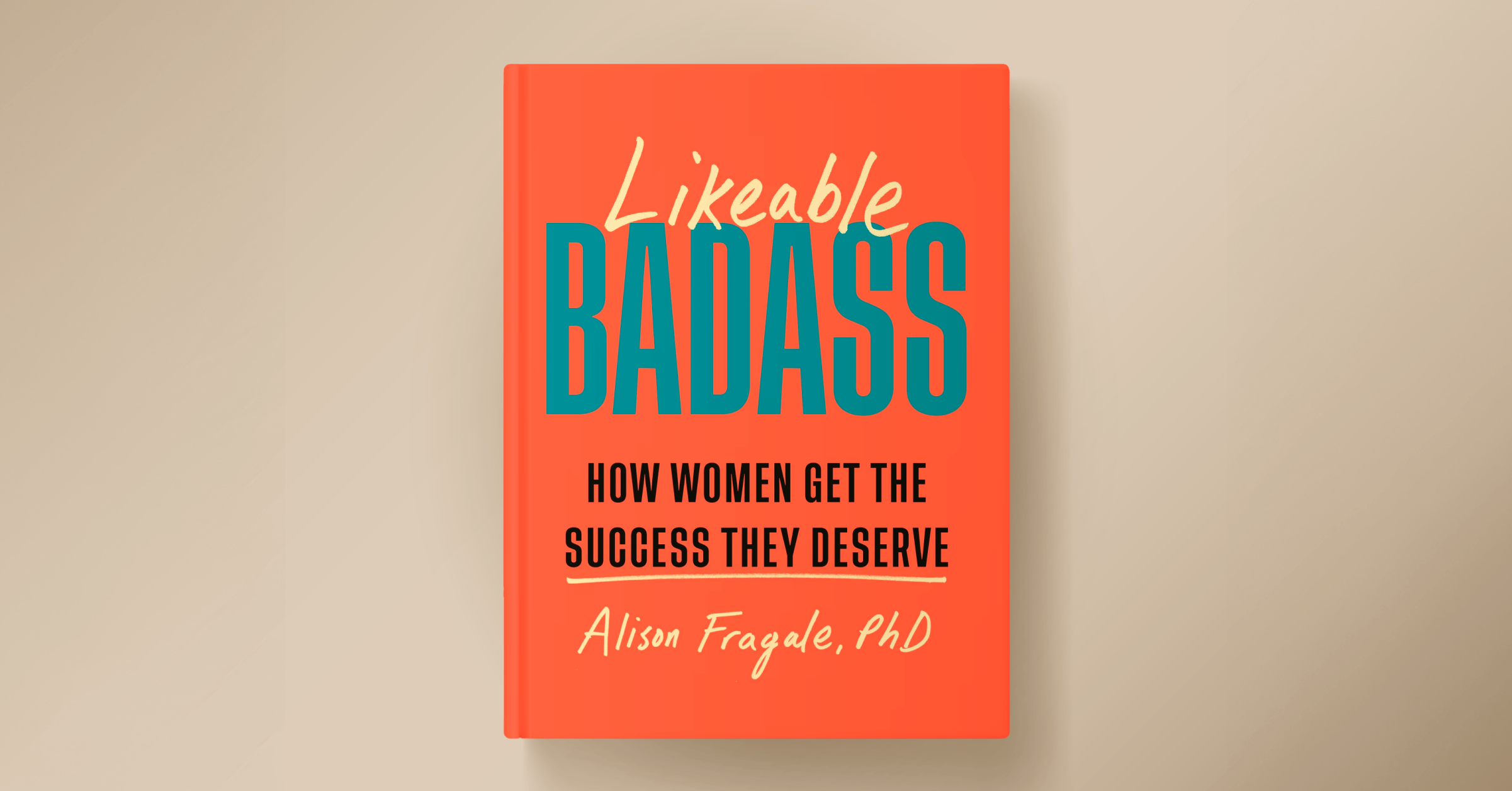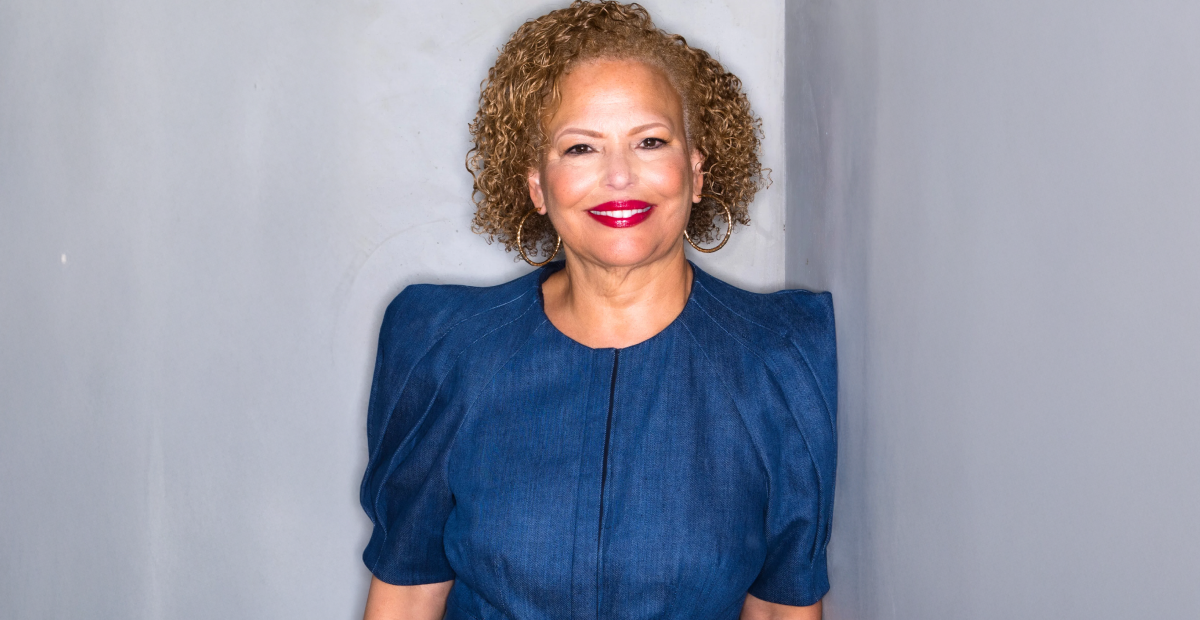As a research psychologist and business professor at the University of North Carolina, Alison Fragale has spent 20 years studying power and status — and how women can overcome eons of discrimination and disadvantages to secure more of these potent qualities in the workplace. In an exclusive excerpt from her new book, "Likeable Badass: How Women Get the Success They Deserve," Fragale describes why status is the key to power, and the subtle but important ways women can elevate how they’re perceived at work.
— Audrey Goodson Kingo
Although it feels like women face a million sources of disadvantage relative to men, they face only two: a lack of power and a lack of status. These are big challenges, no doubt. But, having studied power and status for over 20 years, I assure you that women can triumph in the face of these problems — if we focus on the right one. Spoiler alert: It’s not the one you think it is.
Your power is your control over resources—like money, authority, and a seat at the table where decisions are made. Despite decades of attention to closing the gaps, women continue to lag men on all these dimensions.
Your status, on the other hand, is the way others see you — specifically, how much you’re respected, admired, and valued. Women are disadvantaged here, too. We are disproportionately denied opportunities to have our ideas and contributions presented, acknowledged, and rewarded.
Despite their equal importance to our life satisfaction, however, there’s one glaring difference between them. Both as individuals and as a society, we have primarily focused — perhaps overfocused — on increasing women’s power, while neglecting their status.
The problem with this “power first, status second” mentality is that it contradicts science. Research shows that power is awarded based on status.
In short, status is the problem, and being a likeable badass is the solution.
Likeable Badass, Defined
Not only is a likeable badass reputation desirable in its own right, it's also our path to status. We award status to those that we see as both assertive and warm. Generally, to be seen as a valuable contributor, people need to believe you have the conviction and ability to perform tasks effectively and efficiently, and you care enough about other people to use your talents to benefit them, not just yourself.
Evidence for this comes from a robust line of research on task cues, which are behaviors that signal how good a person might be at a task. Task cues indicate that a person is assertive (e.g., confident, competent, knowledgeable, persuasive), warm (e.g., likeable, pleasant, reasonable, and other-oriented), or both. Because task cues imply ability and competence, we award status to those who display them. To give you a flavor of the diverse types of task cues that have been linked to status, here are a few examples:
Speech Rate, Response Time, and Airtime
A faster speech rate is associated with greater perceptions of confidence and competence, as is shorter response latency — the length of time that passes between when another person stops speaking and you begin. The quicker you enter a conversation and the faster you talk, the more confident and knowledgeable you're perceived to be. Both fast talking and quick responding also enable you to get your share of airtime, and your overall level of verbal participation in a group (holding the content or value of that participation constant) positively affects your status. The more you talk, the more you're seen as having the potential for meaningful contribution, and the more status you're granted.
Speech Style
Traditionally, women have been counseled against the use of "powerless speech,” a tentative style of speaking characterized by hedges (I think, it might), disclaimers (This might be a bad idea, but ... ), and tag questions (Let's meet at noon, OK?). Instead, we have been advised to use "powerful speech,” the assertive alternative that eliminates these signs of hesitation. In reality, some of my earliest research in this area demonstrated that both powerless and powerful speech are valuable task cues. Whereas powerful speech conveys assertiveness, powerless speech conveys warmth.
In general, status is granted to people who are both assertive and warm. If you can signal to others that you're both capable and caring, then your potential value is beyond reproach. But there are some circumstances where one dimension is weighted more heavily than the other. Specifically, I found that when people expected to work closely with someone, they valued that person's warmth more than their assertiveness, and awarded the person more status when they used powerless speech. However, when people didn't expect a future interaction, powerful speech was more status-enhancing, as assertiveness was valued more than warmth. From this work we see that (a) speech styles influence status and (b) powerless speech isn't universally inferior to powerful speech; they each have their own advantage.
Eye Contact
Making and sustaining eye contact conveys assertiveness, whereas looking away conveys the opposite. Eye contact also boosts perceptions of warmth — those who look at us are judged as more likeable, trustworthy, and relationship-building than those who avert their eyes.
Choosing Your Seat
Have you ever walked into a conference room and debated where to sit at the head of the table, along the side, or perhaps in those random chairs that are pushed up against the wall? In one study, researchers explored whether choosing to sit at the head of the table could help a person with a minority opinion influence the decision of a majority. They assembled small groups of strangers and varied whether individuals selected their own seat or were assigned seats. They found the person who held a minority opinion from the rest of the group was more influential when they were seated at the head of the table (rather than on the side), but only when that person was seen choosing their own seat! That is, it wasn't the act of being seated in any one chair that mattered, but the act of selecting it. Choosing to sit at the head of the table conveyed more confidence and consistency, two elements of assertiveness, compared to being assigned the head seat. And, as a result, the person's ideas were held in higher regard.
Humor
There is a strong relationship between humor and status. People who have high status engage in more humor: Men use humor more than women, high participators and frequent interrupters use more successful humor in groups, and being the subject of frequent interruptions — a mark of low status — makes individuals less likely to attempt humor. Just as status leads to humor, humor also leads to status. Individuals who engage in successful humor are awarded more status, in both new and existing relationships, so long as the humor is seen as appropriate.
Offering Help
Status also comes from being a generous exchange partner — giving more help, advice, and support to others than you receive in turn. Offering wisdom demonstrates assertiveness, and when it's done to help others, it also signals warmth. There are many ways to offer valuable help that take mere minutes and could be done for anyone — giving someone directions, recommending a restaurant, making an introduction.
You Do You, Strategically
Maybe this all sounds like great news. Or maybe this idea irks you — these behaviors are so "not me." Fear not. We see from this research that there isn't only one way to be a likeable badass. You can signal assertiveness and warmth through lower-effort behaviors, such as being aware of your verbal and nonverbal signals, higher-effort behaviors and all kinds of strategies in between. Everyone can find tactics that work for them and ignore any that don't.
There are many benefits that come from high status, and many ways to achieve it, without making it a complicated, time-consuming endeavor. Just be your likeable badass self — in the most effective, strategic way possible.
From LIKEABLE BADASS: How Women Get the Success They Deserve by Alison Fragale, PhD. Copyright © 2024 by Alison Fragale. Published by arrangement with Doubleday, an imprint of The Knopf Doubleday Group, a division of Penguin Random House LLC.



